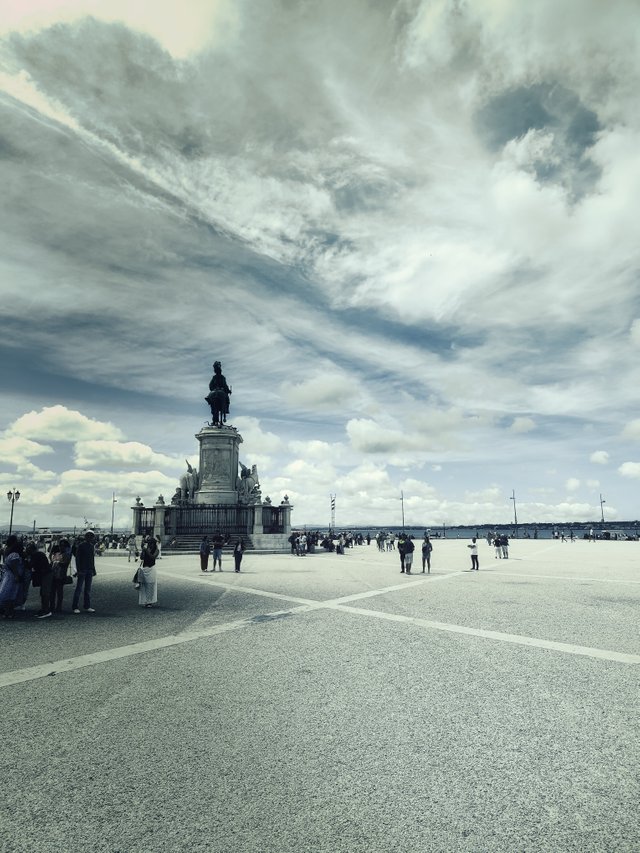📷Curiosities about the Azores Archipelago
Italy Community
✅ 1916 | The Seizure of German Ships in the Azorean Ports
When the major European powers entered into war in September 1914, Portugal initially adopted a position of non-belligerence. However, facing a pressing need for financial credit to purchase coal, grain, other essential goods, and military supplies, the country eventually yielded to British pressure to join the war effort and seize the German ships sheltered in Portuguese ports.
On February 23, 1916, the Portuguese government decreed the seizure of 72 German and Austro-Hungarian ships that had been anchored in Portuguese ports since the start of the war. That same day, and without any incidents, 36 German ships were seized in the port of Lisbon.
At the time, six German ships were docked in Azorean ports:
- In Ponta Delgada: the steamer Schwarzburg, and the sailing ships Margaretha and Schiffbeck.
- In Horta: the barque Max, and the steamers Sardinia and Schaumburg.
While the events in Lisbon are well-documented, information about the seizures in other ports is scarce, even in academic studies.
The operation was overseen by Navy Minister Commander Victor Hugo de Azevedo Coutinho, who instructed the maritime authorities in Ponta Delgada and Horta to carry out the order.
The Seizure in Ponta Delgada
On February 25, the Harbor Captain of Ponta Delgada, lacking military personnel, requested assistance from the local Military Commander. The Commander of Infantry Regiment No. 26 assigned four officers and three squads of ten soldiers, each led by a sergeant, to board and take control of the German ships.
In the early hours of February 26, the German consul Gustav Wallenstein and the ship agents were notified. The occupation operation proceeded smoothly, and by noon the Portuguese national flag was hoisted on all three vessels.
“Following higher orders and in compliance with a government decree […] the respective authorities yesterday took possession of the three German ships – one steamer and two sailing ships – that had been held in our port since the beginning of the war. Each was manned by a detachment from Infantry Regiment 26 and an officer from that unit. […] The ships immediately raised the Portuguese flag. The officers now aboard are Captain Albergaria, Lieutenant Reis, and Ensign Bettencourt, respectively on the steamer Schwarzburg and the sailing ships Margaretha and Schiffbeck.”
— A República (Ponta Delgada), February 27, 1916
However, a tragic incident occurred aboard the Schwarzburg. Despite strict warnings not to tamper with anything or consume any liquids—due to fears of poisoning—some soldiers opened a box containing bottles of unknown liquid. Believing it to be fine liquor, they drank it.
“It was reportedly hydrochloric acid, which they mixed with water and drank as if it were whisky,”
resulting in seven poisonings, four of which were fatal.
— Açoriano Oriental, March 4, 1916
The Seizure in Horta
A similar operation took place in the port of Horta. According to a report dated March 4 by Harbor Captain Commander Octávio Matos Moreira, the Navy Minister had already sent him a top-secret dispatch on February 8, informing him of the government's intention to seize the German ships.
The decree was officially issued on February 23, and reached Horta the following morning. The prearranged plan was then put into action, with support from the crew of the gunboat Açor.
The seizure began on February 26, starting with the notification of Otto Schroder, the German vice-consul, at the Harbor Master's Office. Three boats then set out, commanded respectively by Commander Matos Moreira, Second Lieutenant Artur Carmona of the gunboat Açor, and the Chief Pilot of the Port Authority. Each boat approached one of the German ships. A boarding party—including the commanding officer, an aide, and two witnesses—went aboard, while ten navy soldiers remained ready on the access ladder in case of resistance.
Each German commander was formally notified of the government decision, and by 2 PM the operation was complete. The Portuguese flag was raised on all three ships: the steamers Sardinia and Schaumburg, and the barque Max.
“Everything proceeded as orderly and peacefully as possible,” noted the Harbor Captain. The crews seemed “sincerely satisfied with their new situation,” offered no resistance, and only their commanders issued verbal protests, followed later by written complaints.
Though housing in Horta was limited, accommodations were arranged for all forty German crew members.
The German vice-consul later submitted a written protest, claiming that the ships had surrendered "out of fear of the armed naval force Your Excellency brought with you," and that their crews, including the commanders, had been "immediately taken ashore."
Aftermath
As a result of the seizure of German ships, Germany declared war on Portugal on March 9, 1916.
On March 30, maritime authorities received orders to rename the seized vessels:
- Sardinia → S. Jorge
- Schaumburg → Horta
- Max → Flores
- Schwarzburg → Ponta Delgada
- Margaretha → Graciosa
- Schiffbeck → Santa Maria
| Category | #italy |
| Photo taken at | Lisboa - Portugal |
)


Upvoted! Thank you for supporting witness @jswit.